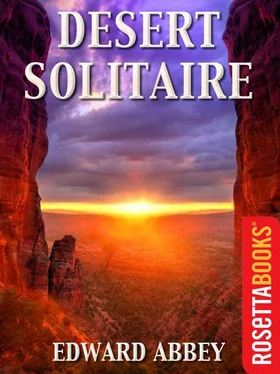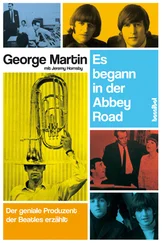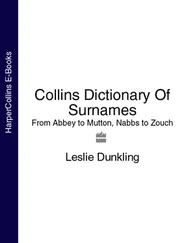Abbey, Edward - Desert Solitaire (Edward Abbey Series )
Здесь есть возможность читать онлайн «Abbey, Edward - Desert Solitaire (Edward Abbey Series )» — ознакомительный отрывок электронной книги совершенно бесплатно, а после прочтения отрывка купить полную версию. В некоторых случаях можно слушать аудио, скачать через торрент в формате fb2 и присутствует краткое содержание. Год выпуска: 2011, Издательство: RosettaBooks, Жанр: Старинная литература, на английском языке. Описание произведения, (предисловие) а так же отзывы посетителей доступны на портале библиотеки ЛибКат.
- Название:Desert Solitaire (Edward Abbey Series )
- Автор:
- Издательство:RosettaBooks
- Жанр:
- Год:2011
- ISBN:нет данных
- Рейтинг книги:4 / 5. Голосов: 1
-
Избранное:Добавить в избранное
- Отзывы:
-
Ваша оценка:
- 80
- 1
- 2
- 3
- 4
- 5
Desert Solitaire (Edward Abbey Series ): краткое содержание, описание и аннотация
Предлагаем к чтению аннотацию, описание, краткое содержание или предисловие (зависит от того, что написал сам автор книги «Desert Solitaire (Edward Abbey Series )»). Если вы не нашли необходимую информацию о книге — напишите в комментариях, мы постараемся отыскать её.
Desert Solitaire (Edward Abbey Series ) — читать онлайн ознакомительный отрывок
Ниже представлен текст книги, разбитый по страницам. Система сохранения места последней прочитанной страницы, позволяет с удобством читать онлайн бесплатно книгу «Desert Solitaire (Edward Abbey Series )», без необходимости каждый раз заново искать на чём Вы остановились. Поставьте закладку, и сможете в любой момент перейти на страницу, на которой закончили чтение.
Интервал:
Закладка:
This being the case, why is the Park Service generally so anxious to accommodate that other crowd, the indolent millions born on wheels and suckled on gasoline, who expect and demand paved highways to lead them in comfort, ease and safety into every nook and corner of the national parks? For the answer to that we must consider the character of what I call Industrial Tourism and the quality of the mechanized tourists—the Wheelchair Explorers—who are at once the consumers, the raw material and the victims of Industrial Tourism.
Industrial Tourism is a big business. It means money. It includes the motel and restaurant owners, the gasoline retailers, the oil corporations, the road-building contractors, the heavy equipment manufacturers, the state and federal engineering agencies and the sovereign, all-powerful automotive industry. These various interests are well organized, command more wealth than most modern nations, and are represented in Congress with a strength far greater than is justified in any constitutional or democratic sense. (Modern politics is expensive—power follows money.) Through Congress the tourism industry can bring enormous pressure to bear upon such a slender reed in the executive branch as the poor old Park Service, a pressure which is also exerted on every other possible level—local, state, regional—and through advertising and the well-established habits of a wasteful nation.
When a new national park, national monument, national seashore, or whatever it may be called is set up, the various forces of Industrial Tourism, on all levels, immediately expect action—meaning specifically a road-building program. Where trails or primitive dirt roads already exist, the Industry expects—it hardly needs to ask—that these be developed into modern paved highways. On the local level, for example, the first thing that the superintendent of a new park can anticipate being asked, when he attends his first meeting of the area’s Chamber of Commerce, is not “Will roads be built?” but rather “When does construction begin?” and “Why the delay?”
(The Natural Money-Mint. With supersensitive antennae these operatives from the C. of C. look into red canyons and see only green, stand among flowers snorting out the smell of money, and hear, while thunderstorms rumble over mountains, the fall of a dollar bill on motel carpeting.)
Accustomed to this sort of relentless pressure since its founding, it is little wonder that the Park Service, through a process of natural selection, has tended to evolve a type of administration which, far from resisting such pressure, has usually been more than willing to accommodate it, even to encourage it. Not from any peculiar moral weakness but simply because such well-adapted administrators are themselves believers in a policy of economic development. “Resource management” is the current term. Old foot trails may be neglected, back-country ranger stations left unmanned, and interpretive and protective services inadequately staffed, but the administrators know from long experience that millions for asphalt can always be found; Congress is always willing to appropriate money for more and bigger paved roads, anywhere—particularly if they form loops. Loop drives are extremely popular with the petroleum industry—they bring the motorist right back to the same gas station from which he started.
Great though it is, however, the power of the tourist business would not in itself be sufficient to shape Park Service policy. To all accusations of excessive development the administrators can reply, as they will if pressed hard enough, that they are giving the public what it wants, that their primary duty is to serve the public not preserve the wilds. “Parks are for people” is the public-relations slogan, which decoded means that the parks are for people-in-automobiles. Behind the slogan is the assumption that the majority of Americans, exactly like the managers of the tourist industry, expect and demand to see their national parks from the comfort, security, and convenience of their automobiles.
Is this assumption correct? Perhaps. Does that justify the continued and increasing erosion of the parks? It does not. Which brings me to the final aspect of the problem of Industrial Tourism: the Industrial Tourists themselves.
They work hard, these people. They roll up incredible mileages on their odometers, rack up state after state in two-week transcontinental motor marathons, knock off one national park after another, take millions of square yards of photographs, and endure patiently the most prolonged discomforts: the tedious traffic jams, the awful food of park cafeterias and roadside eateries, the nocturnal search for a place to sleep or camp, the dreary routine of One-Stop Service, the endless lines of creeping traffic, the smell of exhaust fumes, the ever-proliferating Rules & Regulations, the fees and the bills and the service charges, the boiling radiator and the flat tire and the vapor lock, the surly retorts of room clerks and traffic cops, the incessant jostling of the anxious crowds, the irritation and restlessness of their children, the worry of their wives, and the long drive home at night in a stream of racing cars against the lights of another stream racing in the opposite direction, passing now and then the obscure tangle, the shattered glass, the patrolman’s lurid blinker light, of one more wreck.
Hard work. And risky. Too much for some, who have given up the struggle on the highways in exchange for an entirely different kind of vacation—out in the open, on their own feet, following the quiet trail through forest and mountains, bedding down at evening under the stars, when and where they feel like it, at a time when the Industrial Tourists are still hunting for a place to park their automobiles.
Industrial Tourism is a threat to the national parks. But the chief victims of the system are the motorized tourists. They are being robbed and robbing themselves. So long as they are unwilling to crawl out of their cars they will not discover the treasures of the national parks and will never escape the stress and turmoil of those urban-suburban complexes which they had hoped, presumably, to leave behind for a while.
How to pry the tourists out of their automobiles, out of their back-breaking upholstered mechanized wheelchairs and onto their feet, onto the strange warmth and solidity of Mother Earth again? This is the problem which the Park Service should confront directly, not evasively, and which it cannot resolve by simply submitting and conforming to the automobile habit. The automobile, which began as a transportation convenience, has become a bloody tyrant (50,000 lives a year), and it is the responsibility of the Park Service, as well as that of everyone else concerned with preserving both wilderness and civilization, to begin a campaign of resistance. The automotive combine has almost succeeded in strangling our cities; we need not let it also destroy our national parks.
It will be objected that a constantly increasing population makes resistance and conservation a hopeless battle. This is true. Unless a way is found to stabilize the nation’s population, the parks cannot be saved. Or anything else worth a damn. Wilderness preservation, like a hundred other good causes, will be forgotten under the overwhelming pressure of a struggle for mere survival and sanity in a completely urbanized, completely industrialized, ever more crowded environment. For my own part I would rather take my chances in a thermonuclear war than live in such a world.
Assuming, however, that population growth will be halted at a tolerable level before catastrophe does it for us, it remains permissible to talk about such things as the national parks. Having indulged myself in a number of harsh judgments upon the Park Service, the tourist industry, and the motoring public, I now feel entitled to make some constructive, practical, sensible proposals for the salvation of both parks and people.
Читать дальшеИнтервал:
Закладка:
Похожие книги на «Desert Solitaire (Edward Abbey Series )»
Представляем Вашему вниманию похожие книги на «Desert Solitaire (Edward Abbey Series )» списком для выбора. Мы отобрали схожую по названию и смыслу литературу в надежде предоставить читателям больше вариантов отыскать новые, интересные, ещё непрочитанные произведения.
Обсуждение, отзывы о книге «Desert Solitaire (Edward Abbey Series )» и просто собственные мнения читателей. Оставьте ваши комментарии, напишите, что Вы думаете о произведении, его смысле или главных героях. Укажите что конкретно понравилось, а что нет, и почему Вы так считаете.












